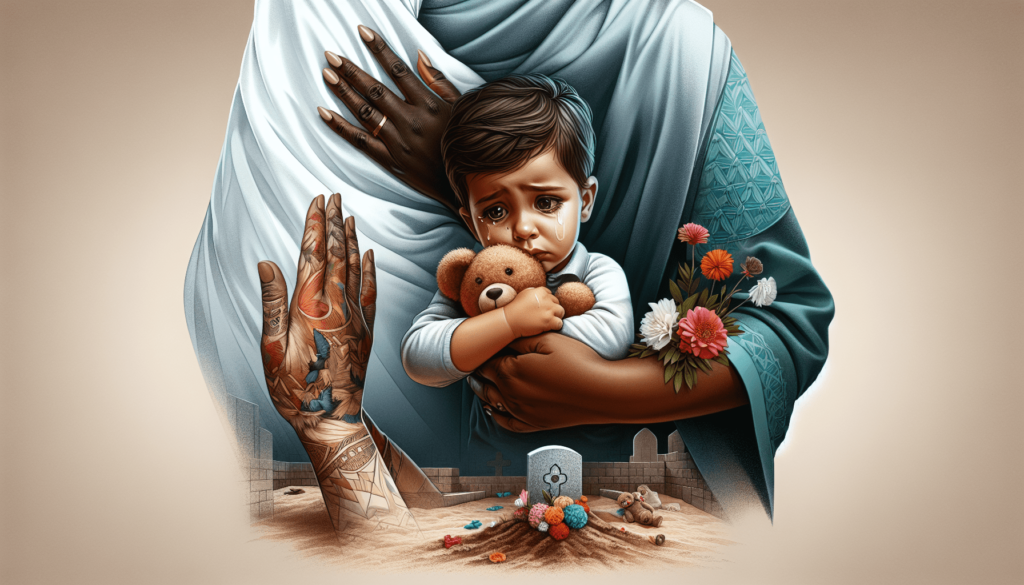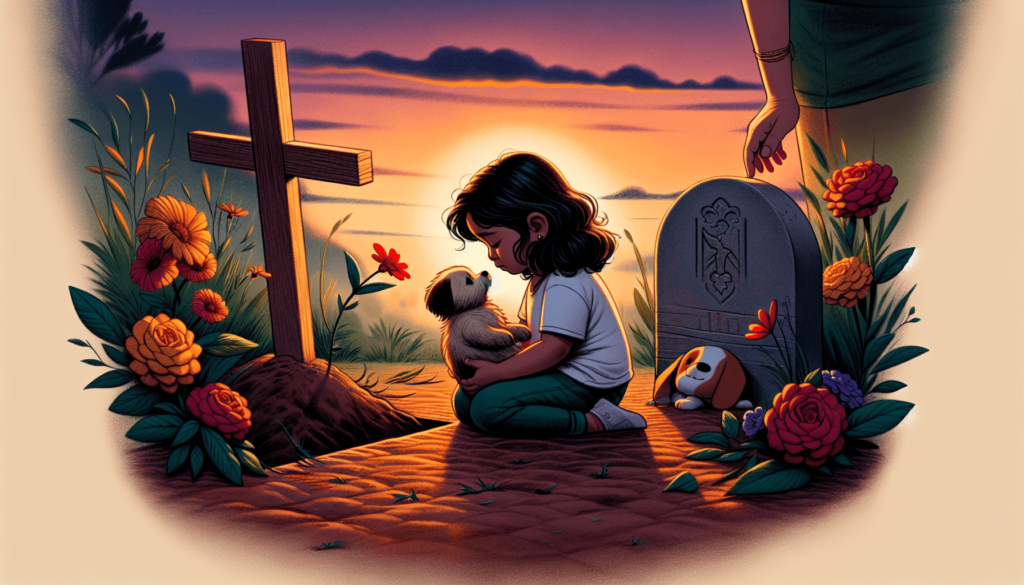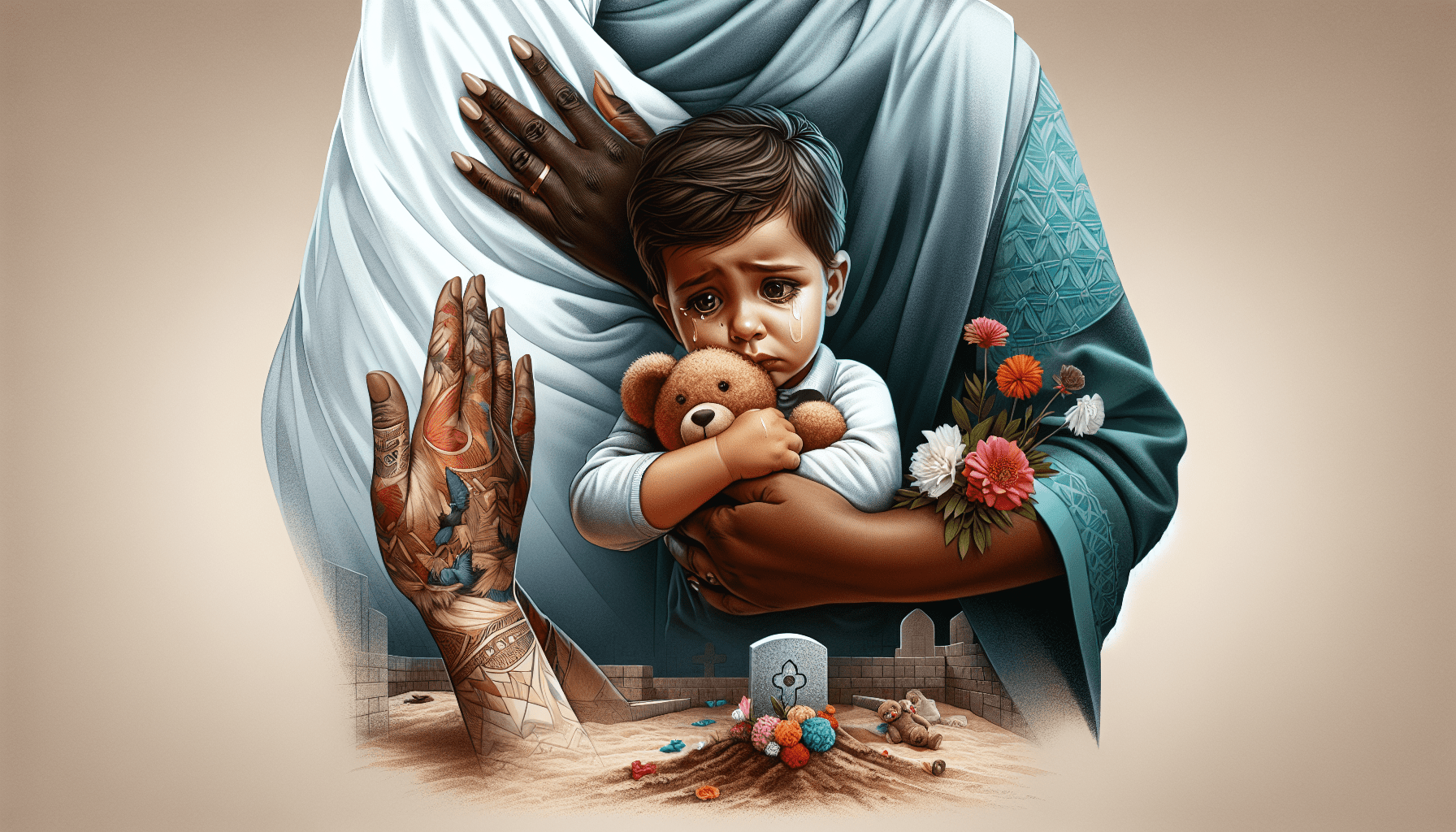Losing a beloved pet can be a difficult and emotional experience for children. It’s important to offer them support and guidance during this challenging time. By providing them with opportunities to express their feelings, creating a tribute or memorial for the pet, and reassuring them that it’s okay to grieve, you can help children cope with the loss of a pet in a healthy and constructive way. It’s essential to understand that everyone processes grief differently, and it’s okay for children to feel a range of emotions as they navigate this loss. With love, patience, and understanding, you can help them through this sad time and ensure they feel supported and comforted.
Helping Children Cope With The Loss Of A Pet
Are you struggling with helping your child cope with the loss of a beloved family pet? Losing a pet can be a difficult and emotional experience for children, but there are ways to support them through this challenging time.

Understanding Grief in Children
Losing a pet can be especially challenging for children, as they may not have fully developed coping mechanisms for dealing with loss. It’s important to understand that children grieve differently from adults and may express their emotions in various ways.
Children may experience a range of emotions such as sadness, anger, guilt, confusion, and even numbness when dealing with the loss of a pet. As a parent or caregiver, it’s essential to provide a safe and supportive environment for your child to express their feelings and process their grief.
Encouraging Open Communication
One of the most critical ways you can support your child through the loss of a pet is by encouraging open communication. Let your child know that it’s okay to talk about their feelings and emotions surrounding the loss.
Be a good listener and validate your child’s feelings, even if they seem irrational or insignificant to you. Avoid dismissing or trivializing their emotions, as this can create a barrier to open communication.
Honoring the Memory of the Pet
Creating a lasting memory of the pet can help children cope with their loss and provide them with a sense of closure. Consider holding a memorial service or creating a special scrapbook with photos and memories of the pet.
You can also plant a tree or flowers in the pet’s memory, or create a personalized piece of artwork or jewelry to honor their legacy. Encourage your child to share stories and memories of the pet to keep their memory alive.
Seeking Support from Others
Don’t underestimate the power of seeking support from others during this difficult time. Encourage your child to talk to friends, family members, or a therapist who can provide additional support and guidance.
Support groups for children who have lost a pet can also be beneficial, as they provide a safe space for children to connect with others who are experiencing similar emotions. Sharing their feelings with others can help children feel less alone in their grief.

Providing Reassurance and Stability
During times of loss and grief, children may feel uncertain and anxious about the future. It’s essential to provide reassurance and stability by maintaining routines and structure in their daily lives.
Let your child know that you are there for them and that they can rely on you for support and comfort. Create a sense of security by spending quality time together and engaging in activities that bring joy and comfort to your child.
Encouraging Self-Expression
Encouraging your child to express themselves through creative outlets can be a therapeutic way for them to cope with their emotions. Provide art supplies, journals, or music instruments that allow your child to express their feelings in a safe and healthy way.
Encourage your child to write a letter to their pet, draw pictures of them, or compose a song in their memory. By expressing themselves creatively, children can process their grief and find comfort in honoring their pet’s memory.
Educating About the Concept of Death
Children may have different understandings of death depending on their age and development. It’s essential to have open and honest conversations with your child about the concept of death in a way that is age-appropriate and easy for them to understand.
Use simple and concrete language to explain that death is a natural part of life and that their pet has passed away. Reassure your child that their pet is no longer in pain and that it’s okay to feel sad and miss them.
Allowing Time for Healing
Healing from the loss of a pet takes time, and it’s essential to be patient with your child as they navigate through their grief. Encourage them to take things one day at a time and to be gentle with themselves as they process their emotions.
Provide opportunities for your child to engage in self-care activities that bring them comfort and relaxation. Encourage them to practice mindfulness, meditation, or other stress-reducing activities that help them cope with their grief.
Fostering Resilience and Growth
While the loss of a pet can be a challenging experience for children, it can also be an opportunity for growth and resilience. Encourage your child to reflect on their memories with their pet and the lessons they have learned from this experience.
Help your child focus on positive aspects of their life and the love and support they have from their family and friends. By fostering resilience and growth, children can emerge stronger and more resilient from their experience of loss.
Conclusion
Losing a pet can be a heartbreaking experience for children, but with the right support and guidance, they can navigate through their grief and find healing. By understanding their emotions, encouraging open communication, honoring the memory of the pet, seeking support from others, and providing reassurance and stability, you can help your child cope with the loss of their beloved pet. In time, they will be able to cherish the memories of their pet and find comfort in the love and support of those around them.

